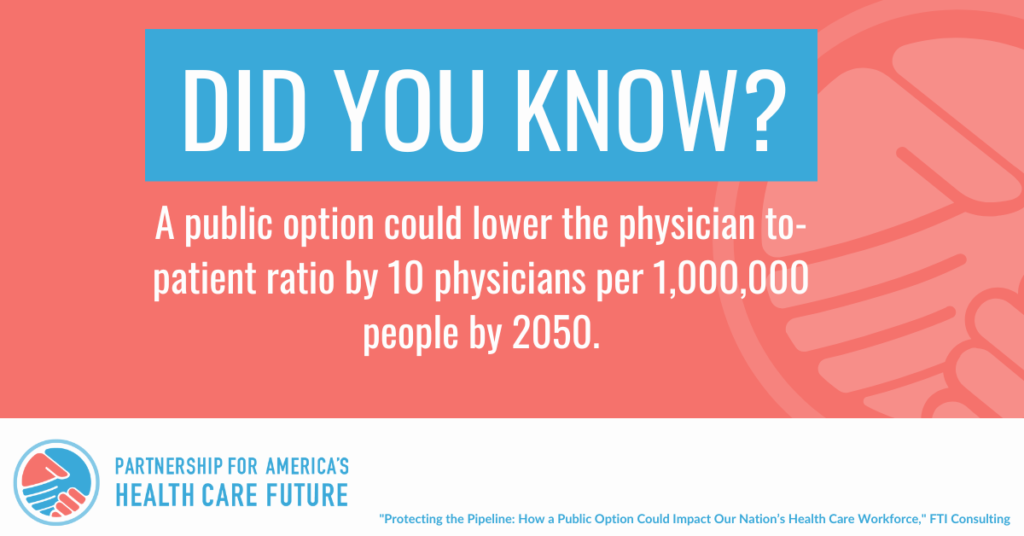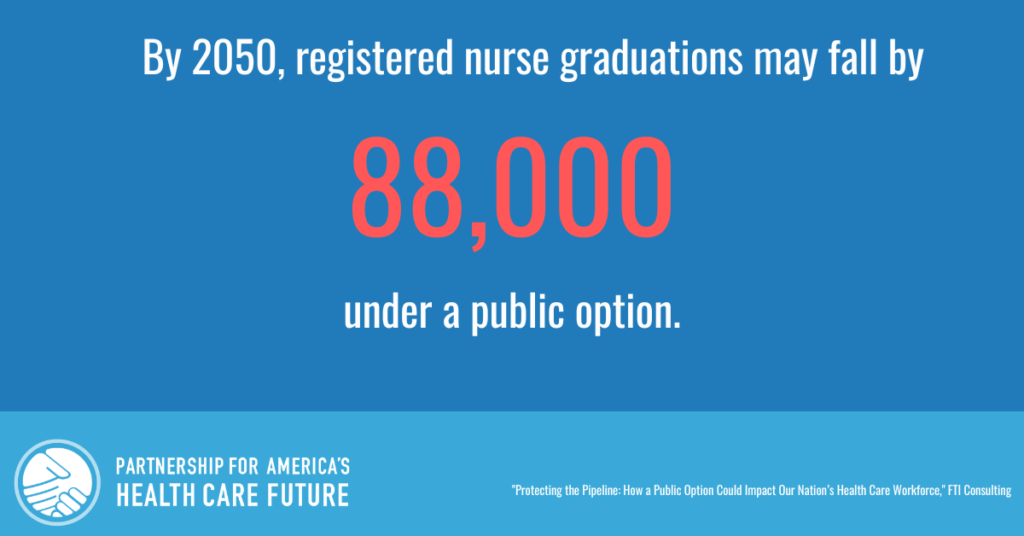A Public Option Could Negatively Impact the Nation’s Health Care Workforce
As some policymakers discuss creating unaffordable, new government-controlled health insurance systems like the public option, a new report shows that implementing a public option could pose negative consequences for patients and health care providers.
The report by experts at FTI Consulting, supported by the Partnership for America’s Health Care Future, finds that the public option could present additional challenges for our health care workforce by cutting its funding, straining resources used to attract and retain staff, and threatening access to care.


THE FACTS:
- A national public option could lower the physician–
- A national public option could elevate the physician shortage to 78,701 providers and contributing to a projected shortage of nearly 33,000 primary care providers (PCP) by 2050.
- Under a public option, the specialist workforce may shrink by nearly 3,400 physicians by 2050 resulting in a total shortage of 46,304 specialists.
- By 2050, under a public option, registered nurse (RN) graduations may fall by two percent, or 88,000 registered nurse graduations.
- A public option could exacerbate rural workforce shortages, amplifying disparities, and low reimbursements could also cut into the margins rural hospitals depend on to pay health care workers.
- A national public option could reduce total national expenditures on physician and clinical services by nearly 1.4 percent, amounting to losses of more than $10 billion per year for providers.
THE TRUTH:
Unaffordable, new government-controlled health insurance systems like the public option could come with high costs and negative, unintended consequences for patients and health care providers. Our leaders need to focus on solutions that build on and improve what’s working in health care, not start over.